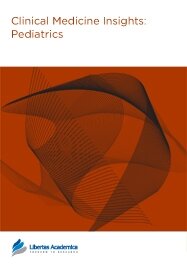

Publication Date: 18 Feb 2009
Journal: Clinical Medicine Insights: Pediatrics
Citation: Clinical Medicine: Pediatrics 2009:3 33-37

Ann Chen Wu1,2, Matthew W. Gillman1,3, Elsie M. Taveras1,2 and Augusto A. Litonjua4-6
1Center for Child Health Care Studies, Department of Ambulatory Care and Prevention, Harvard Pilgrim Health Care and Harvard Medical School, Boston, Massachusetts, U.S.A. 2Division of General Pediatrics, Children’s Hospital, Boston, Massachusetts, U.S.A. 3Department of Nutrition, Harvard School of Public Health, Massachusetts, U.S.A. 4Channing Laboratory, Department of Medicine, Brigham and Women’s Hospital. 5Harvard Medical School, Boston, Massachusetts, U.S.A. 6Center for Genomic Medicine, Department of Medicine, Brigham and Women’s Hospital, Boston, Massachusetts, U.S.A.
Abstract
Researchers have described the association of a common DNA polymorphism, rs7566605, near INSIG2 (insulin-induced gene 2) with obesity in multiple independent populations that include subjects ages 11–60 years.1 To our knowledge, no studies have examined the association of this polymorphism with weight status during early childhood. We explored the association of the rs7566605 polymorphism with weight-for-length among 319 children at 6 months and 3 years participating in Project Viva, a pre-birth cohort study. In contrast to studies of older individuals, CC homozygosity was associated with lower gain in weight-for-length z-score between birth and age 6 months than GG homozygosity or GC heterozygosity. At age 3, we did not find an association. The association of INSIG2 gene with obesity may change direction with age.
PDF (217.91 KB PDF FORMAT)
RIS citation (ENDNOTE, REFERENCE MANAGER, PROCITE, REFWORKS)
BibTex citation (BIBDESK, LATEX)
XML
PMC HTML

The publishing experience in Libertas Academica journals is unique. Readers can feel satisfied that publications are peer reviewed. Authors follow simple steps to reach final stage of publication. All readers have access to articles. Journal subscriptions or medical library access is not needed.
Facebook Google+ Twitter
Pinterest Tumblr YouTube